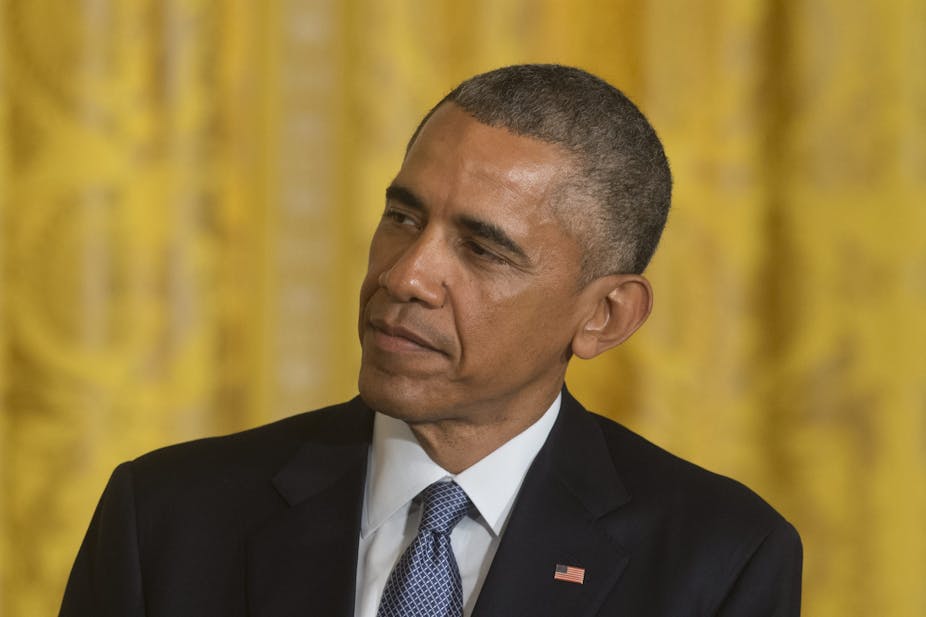There’s nothing like a little juxtaposition to put things in context. On the same day Oxfam warned that 1% of the world’s population would soon control 50% of its wealth, US President Barack Obama came under renewed attack for suggesting that he wanted to redirect wealth from the rich to the poor.
Obama will apparently outline proposals to address America’s growing divide between the handful of haves and the great majority that has a good deal less in his forthcoming State of the Union address. True, the US is not the Congo – currently the poorest country in the world – but it is widely recognised that stark economic inequality is a growing and increasingly visible problem in the land of the free.
The principal targets of Obama’s proposals are American financial institutions, which will be subject to a US$300 billion levy, and the very rich, who will – in theory, at least – be hit with a new 28% top rate of capital gains tax. Even in the unlikely event that this tax is passed, and the rich actually cough-up rather than get their lawyers and accountants to help them dodge it, is it really such an imposition?
One might think so to judge by the all-too-predictable squealing from the usual suspects. A spokesman for the American Bankers’ Association quoted in the Financial Times claimed that:
… this really comes at a difficult time for an industry that is moving the economy forward.
Cynics might ask whether that was “forward” to the next financial crisis. This is, after all, an “industry’ that produces remarkably little other than regular convulsions in the global financial markets that destabilise the "real” economy where most of us earn our keep.
Yes, that is a rather old-fashioned view of the way economies are structured, but it’s an illuminating one nonetheless. The reality is that “Wall Street” is one of the biggest sources of campaign funding in the US, contributing some $120 million in 2012-13. Hedge funds alone stumped up more than $26 million. Significantly such largesse is currently favouring the Republicans by a margin of two to one.
This is what is known as “regulatory capture” among political science types. Powerful vested interests are able to buy political influence and ensure that policy initiatives reflect their preferences. It is no coincidence that the regulatory framework that ensured a degree of stability in the financial sector in the first decades after the Second World War was steadily unwound as a consequence of corporate lobbying and the revolving door from policymaking to the financial sector and back again.
It is the existence of such enduring links that lead some to claim that the financial sector exerts a form of “structural power”, in which its sheer scale means the policymakers are reluctant to take it on – with or without their reliance on campaign donations.
And yet, as an important recent paper points out, US financial sector actors actually have less structural power than their counterparts in the UK. American financial institutions are more reliant on the domestic market than in Britain, giving the US government a good deal of potential leverage – should they choose to exercise it.
But even if we put to one side the gridlocked nature of America’s domestic political scene and that the Republicans are likely to fight tooth-and-nail to protect their supporters on Wall Street, it is hard to know how serious the Obama administration is about all this. After all, he has had six years to do something about this. So why try now when his influence over Congress is more diminished than ever?
Perhaps Obama has been reading Thomas Piketty, the man who reminded the world about the perils of inequality. It would be nice to think that persuasive evidence and a good argument could actually make more of an impact than vested interests and piles of cash. Despite a recent improvement in the US’s budgetary position there are still compelling arguments on grounds of economic sustainability and social equity for increasing taxation on those best able to pay.
As F. Scott Fitzgerald famously observed, the rich aren’t like you and me. But do their incentive structures really need to be quite so powerful, acquisitive and unambiguously selfish? Fitzgerald is also a reminder of an age when wealth distribution was similarly uneven and finance capital was in the ascendancy. It’s not the whole story of the Depression, but it’s not irrelevant either.
No doubt Obama will incur more accusations of being a socialist if he’s actually serious about doing something about America’s growing inequality. But one of the prime goals and responsibilities of governments of all types is maintaining social stability.
For democracies, that also means maintaining confidence in its legitimacy and capacity to represent all of the people. The alternative is the best democracy money can buy.

